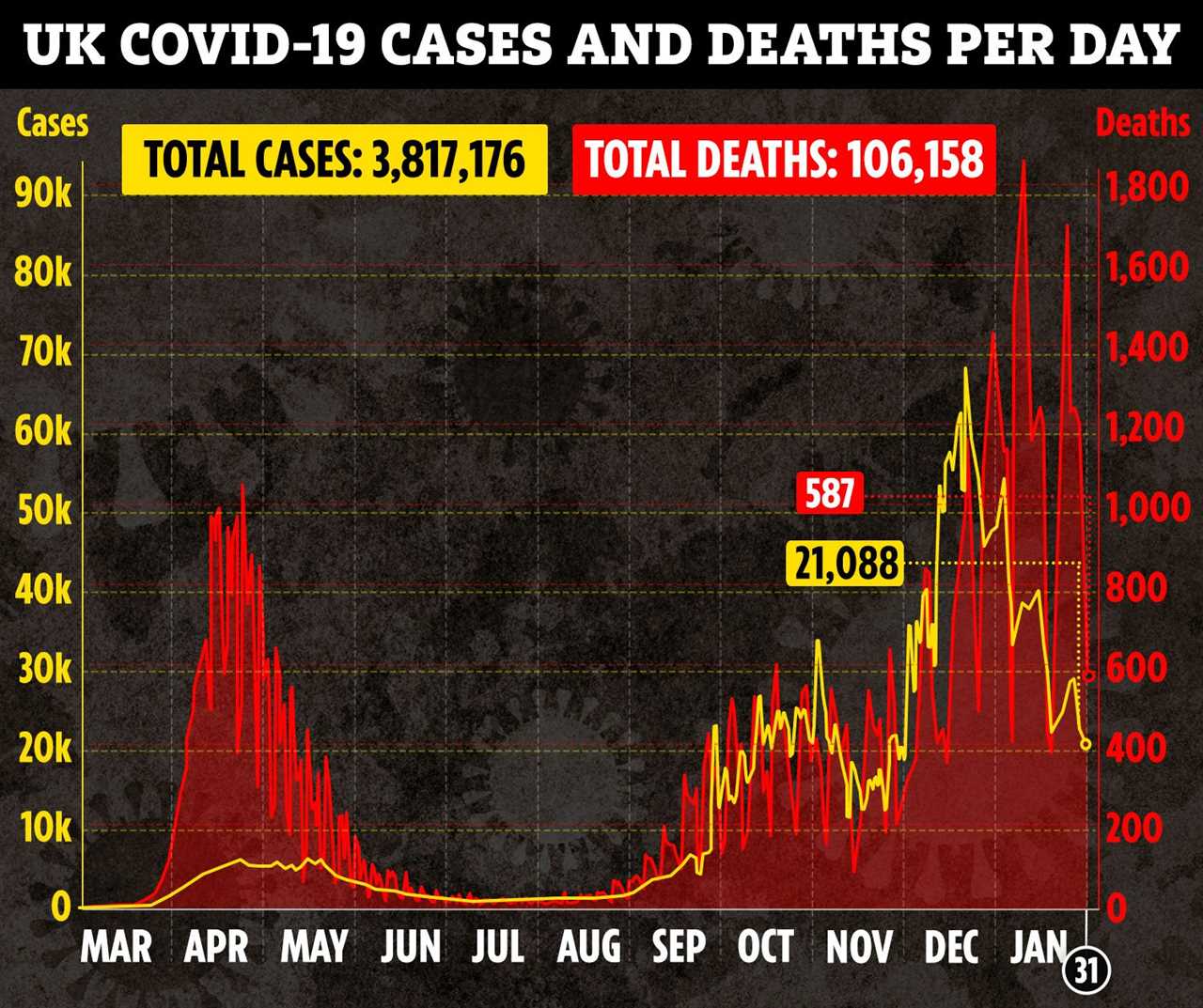BRITAIN is ready to send leftover vaccines to its “friends and neighbours” as soon as our population is protected, a Cabinet minister has said.
Trade Secretary Liz Truss did not rule out helping Ireland, which is struggling to meet jab targets after being hit by EU supply issues.

Read our coronavirus live blog for the latest news & updates
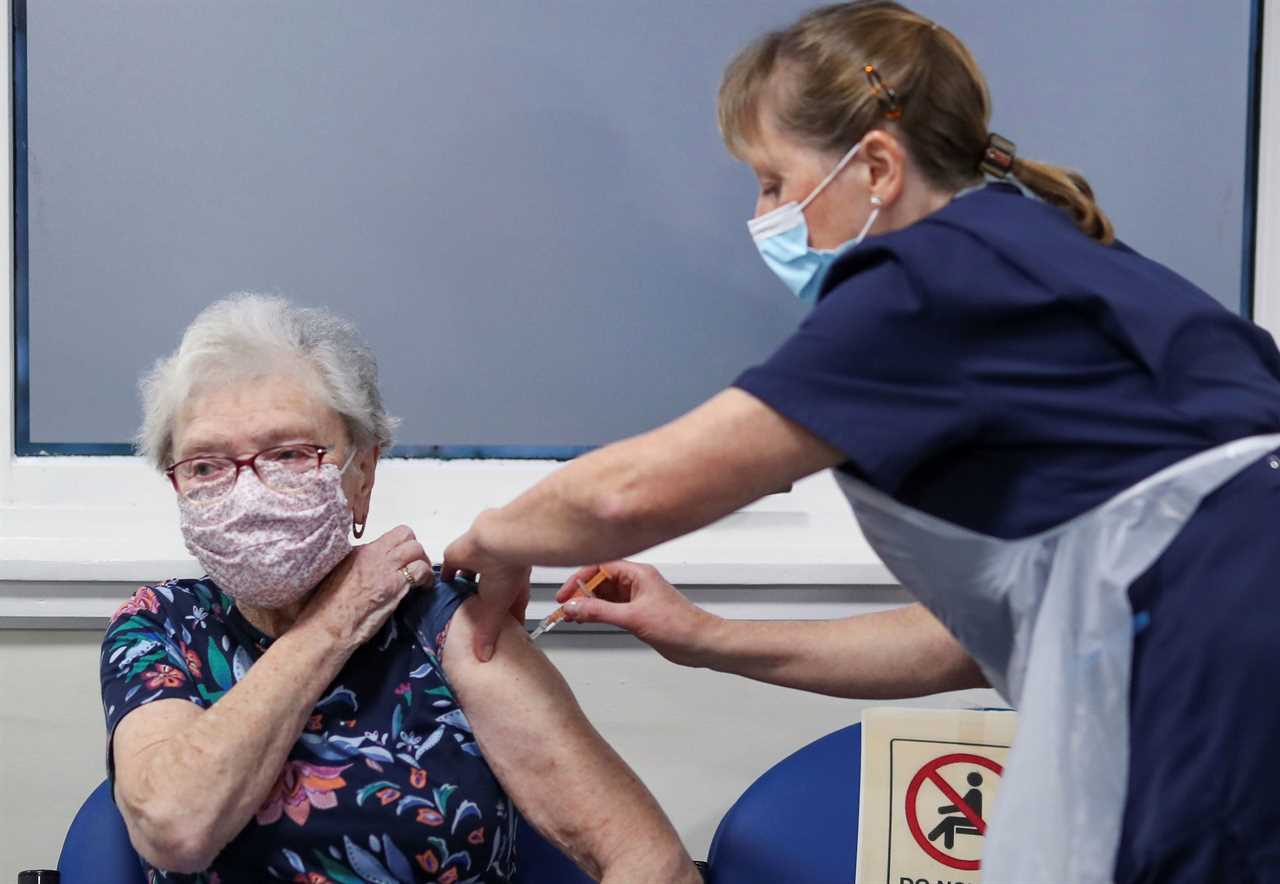
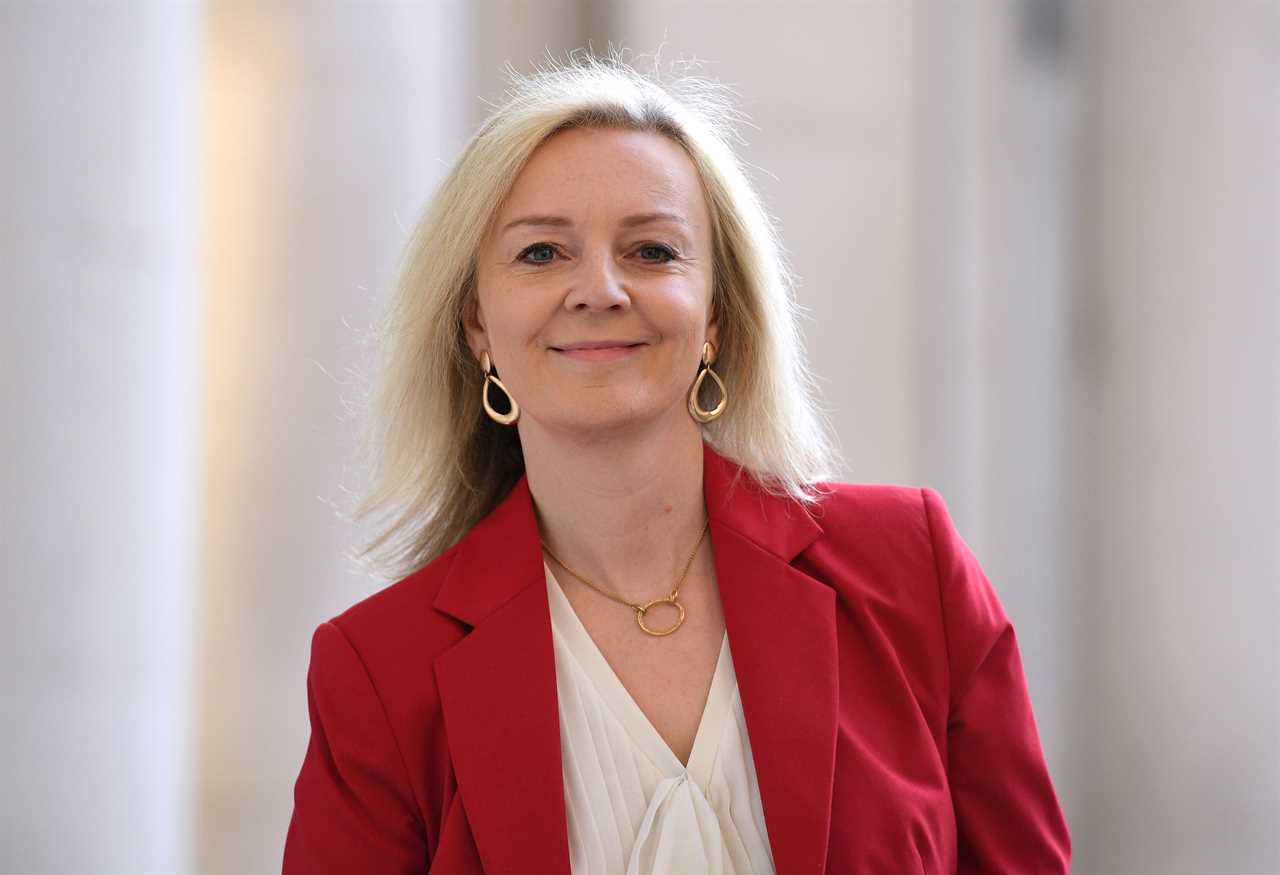
Ms Truss said: “Of course, we first need to make sure that our population is vaccinated.
“We have a target to get the most vulnerable vaccinated by mid-February.
“It’s a bit too early to say about how we would deploy vaccines but we certainly want to work with friends and neighbours.
“We want to work with developing countries because we’re only going to solve this issue once everybody in the world is vaccinated.”
But with predictions that the UK will ultimately have a surplus of jabs after vaccinating the population, questions have turned to when the Government will help other nations.
Meanwhile, the row over the EU’s attempts to put checks on the Irish border to try to control vaccine exports continues.
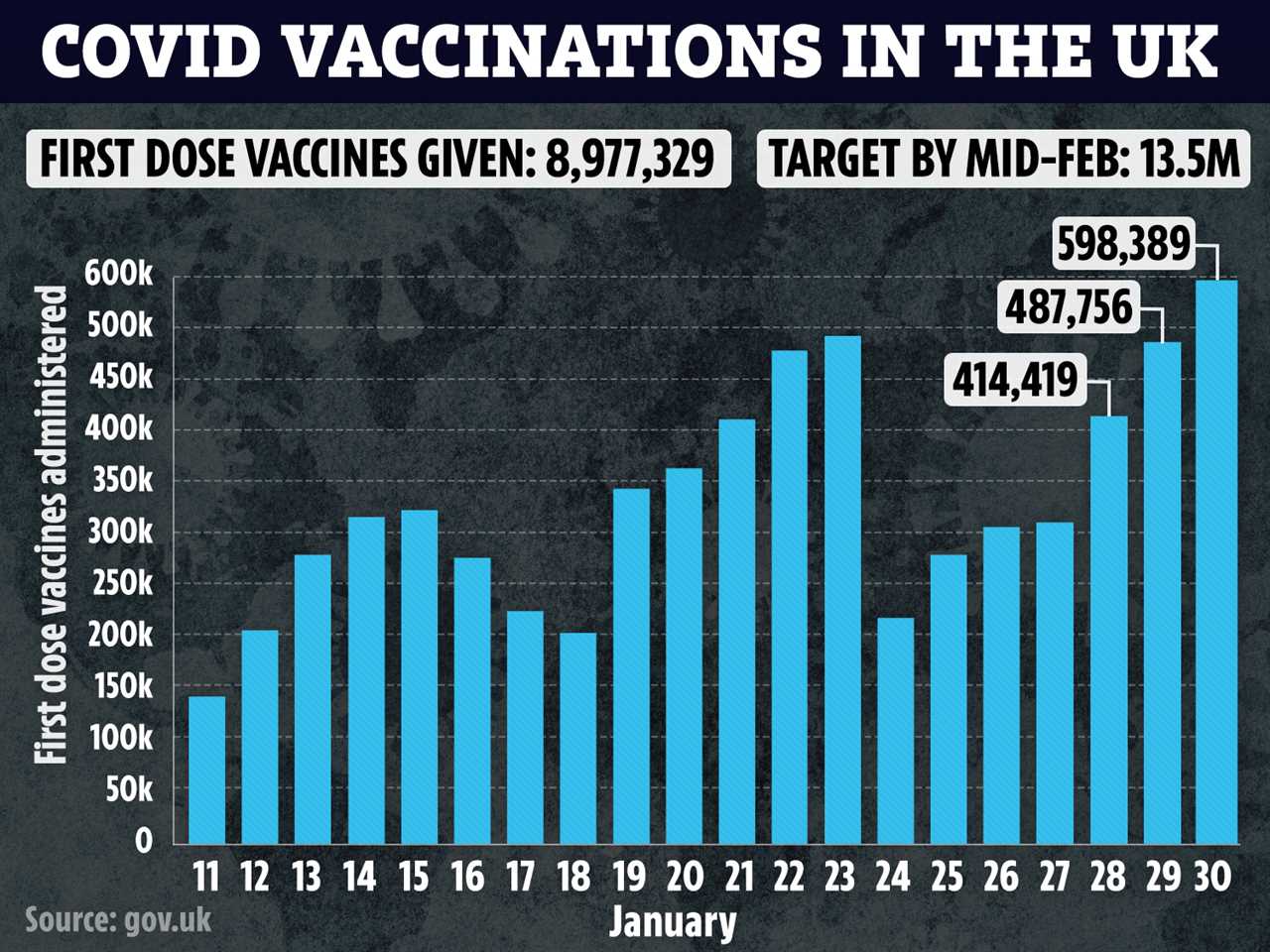
The EU signed a deal in August for 300million doses of the Oxford- AstraZeneca vaccine — approved for use in the union on Friday.
The UK ordered 100million doses in May.
But AstraZeneca said there were supply problems caused by manufacturing difficulties at its plants in Belgium and the Netherlands.
It meant the EU was likely to receive fewer doses so in an effort to control the supply problems the bloc announced it was introducing export controls on vaccines made there.
And it said it would apply them to vaccines moving between the Republic of Ireland, which is in the EU, and Northern Ireland.
‘ACT OF HOSTILITY’
It meant the EU would be overriding part of the Brexit deal for Northern Ireland.
The country’s First Minister Arlene Foster called it “an incredible act of hostility” by the EU — although it has since reversed the decision.
But France’s Europe minister Clement Beaune has said the EU could punish AstraZeneca if the company prioritised deliveries to the UK.
He said: “These are serious accusations, so it is not done lightly.
“I am not saying that there is a problem but if there is a problem and they have favoured other countries, for example the UK, over us then we will defend our interests.
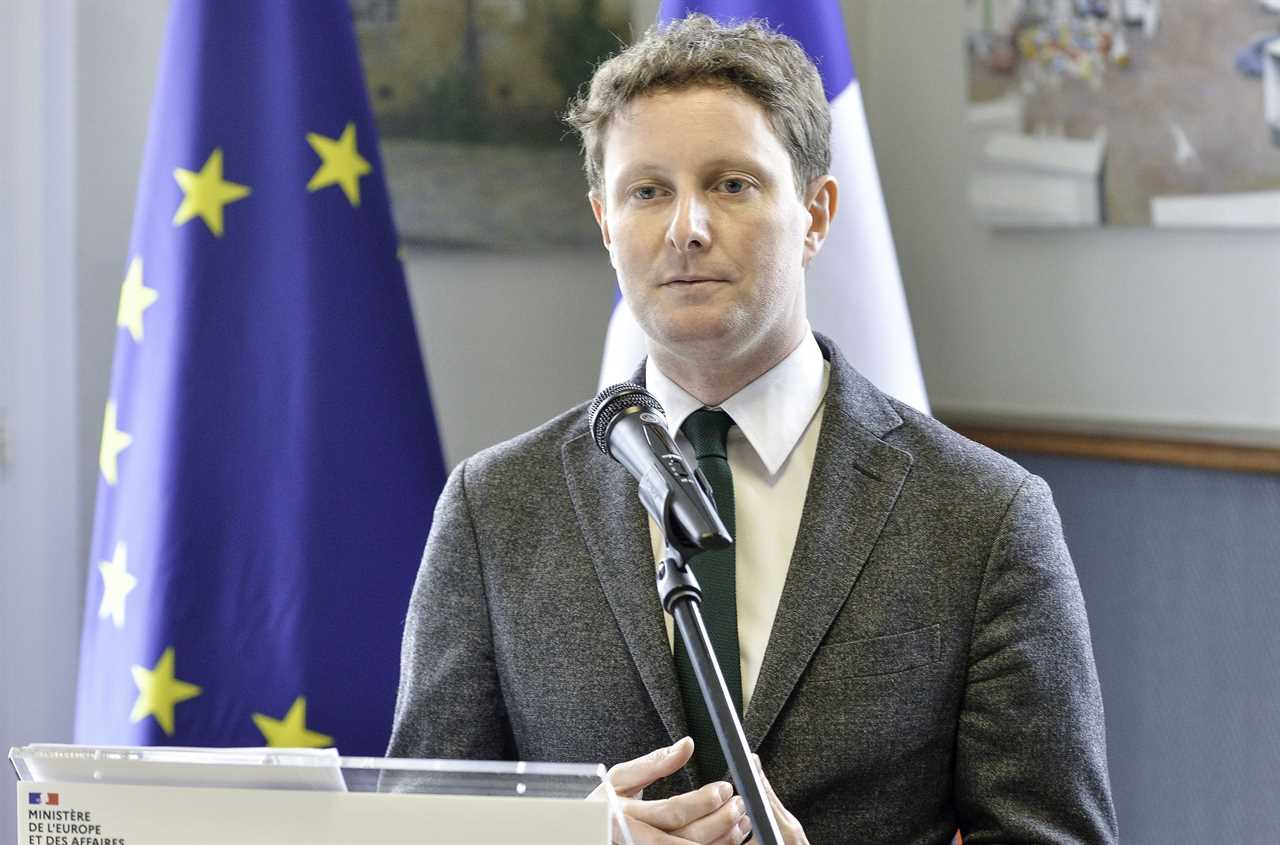
“Our contracts need to be respected. Contracts are not moral commitments, they are legal commitments.
“Penalties or sanctions can be triggered in every contract.
“If there has been a preference granted to the British, then that’s a problem.”
